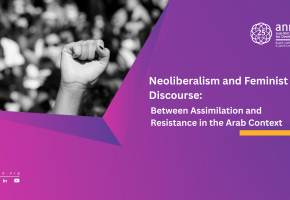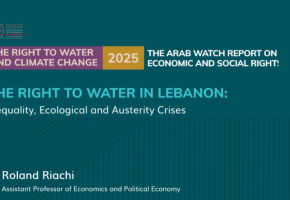
Position Statement 3 - State-subsidies are not the solution anyway
Collective of Independent Social Protection Experts
Position Statement 3 - State-subsidies are not the solution anyway
December 8, 2020
In
light of our previous statements that have repeatedly voiced the
importance and urgency of universal social protection, we, the
collective of social protection experts, maintain that subsidisation or
de-subsidisation are not the solutions for addressing long lasting
inequality and inequity in the country. In the current crises that
Lebanon is witnessing, we reiterate the urgency to enact a comprehensive
universal social protection framework, based on a social contract, and
guaranteeing protection for all during their life-cycle.
What are subsidies?
Subsidies
are a type of social assistance similar to non-contributory transfers
in cash, quasi-cash (such as food vouchers), or in-kind assistance. They
consist of mechanisms through which certain goods or services are
financially supported by the state, and sold nationally at lower prices.
Subsidies are generally presented by policymakers as a tool to protect
against price fluctuations, alleviate poverty, and maintain standards of
living. Typically, they are used in contexts of crisis in response to
looming instability. Subsidies reflect a regressive form of assistance.
Their impact on poorest households is difficult to quantify on the one
hand, and on the other, middle- and upper-income segments of the
population tend to benefit from some schemes even when not needed,
mainly when these subsidies are universal and not channeled through a
proper targeting mechanism, which renders them, in turn, completely
inefficient.1
Current subsidisation in Lebanon
The
ruling elite has continuously and increasingly trespassed state
institutions and laws in a policy making process which solely aimed at
the distribution of rents, benefits, and spoils. Over the past decades,
state dysfunction and elite incompetence finally yielded multiple
macro-economic, fiscal, and monetary crises. Since October 2019, these
compounded crises have taken place in the context of an embryonic social
state. Adopting a risk-management type of social protection policy,
Lebanon has relied on subsidies incurring depletion of already thinning
resources. Social risk management is an adaptive social protection
framework that focuses on vulnerable groups and rests on targeting via
cash transfers, and food subsidy reforms. In such a frame, political
status quo is maintained through the prioritisation of budget
efficiencies away from social cohesion or transformation goals. In fact,
some observers argue that rapid increases in food prices can explain
the emergence of social conflict, knowing that recent data shows that a
significant part of the Lebanese population suffers from food
insecurity, with approximately half of the population being reportedly
concerned about their ability to pay for enough food.
In
this context and in response to the exchange rate crisis and its impact
on domestic prices, Lebanon resorted to subsidizing imports of vital
goods such as fuel, medication, and wheat using a monetary policy scheme
employed by the Central Bank at the official exchange rate (LBP
1515=USD 1). In addition, a food basket was subsidised since July 2020
(LBP 3850= USD 1). Such forms of subsidisation cannot address the
increasing impoverishment of the population, and the lack of access to
basic social protection rights and services.
Why de-subsidisation?
Today,
and in a context of acute multi-layered crises in Lebanon, and in the
absence of any comprehensive social policy, or social crisis mitigation
plan, a suggested quick fix as a way out of the crises has been the
elimination of subsidies. In practice, de-subsidisation will mean that
the prices of the above-mentioned goods will no longer be linked to the
official exchange rate of the Lebanese pound against the US dollar,
which will imply higher prices and costs on the consumers. Although a
partial de-subsidisation is currently framed as a possible policy
solution, waiving subsidies will incur a heavy social impact on low- and
middle-income groups. The increase of the price of medication is deemed
to have the most dangerous impact on the population in general and the
capital of the NSSF in particular. Discussions of de-subsidisation are
taking place amidst a stark shortage of accurate data on available
reserves. The process also lacks any strategic planning due to the
obvious incompetence and dysfunction of the state elite and the fear of
the latter from the outburst of social unrest following the decision of
de-subsidisation.
What is our position: Nothing short of universal social protection
From our vantage point that consecrates the importance and urgency of universal social protection, the Collective reiterates that subsidisation as a social assistance mechanism is not the solution for addressing long-standing social grievances and staggering levels of poverty
In
any case, resources needed for subsidisation should not be funneled
from the central bank mandatory reserves which would directly affect the
population and other sources should be tapped into such as progressive
taxation, bank recapitalization, as well as accountability mechanisms
that ensure the recuperation of stolen funds. In this vein, cash
transfers that hinge on additional state indebtedness, targeting
affected households seem inefficient and irrelevant since more than half
the population is already poor and more will follow upon upcoming
de-subsidisation.
Upon
the urgent formation of a cabinet, subsidisation policies should be
carefully reviewed and revised within an overarching comprehensive
social protection framework accompanied with a social and economic
dialogue. Finally, we strongly urge all efforts and forces to urgently
work together towards a comprehensive social policy.2
Lea Bou Khater
Marie-Noëlle AbiYaghi
Sally Abi Khalil
Sami Zoughaib
Maha Shuayb
Gilbert Doumit
Lara Feghaly
Arab NGO Network for Development, ANND
Click here For full list of Signatories, Click here to Endorse
References:
1- Universal subsidies are usually easy to manage and are out in place to address a broad crisis. Meanwhile targeted subsidy becomes a must when resources are scarce and universal subsidies represent huge risk of leakage and exclusion.
2- As we have already stated previously, in June 2020: https://daleel-madani.org/press-releases/position-social-protection-expert-group-lebanese-governments-financial-recovery-plan; and in April 2020 : https://daleel-madani.org/civil-society-directory/lebanon-support/press-releases/social-protection-emergency-response-bridge-toward-comprehensive-national-social-protection-plan
Recent publications

Neoliberalism and Feminist Discourse: Between Assimilation and Resistance in the Arab Context
